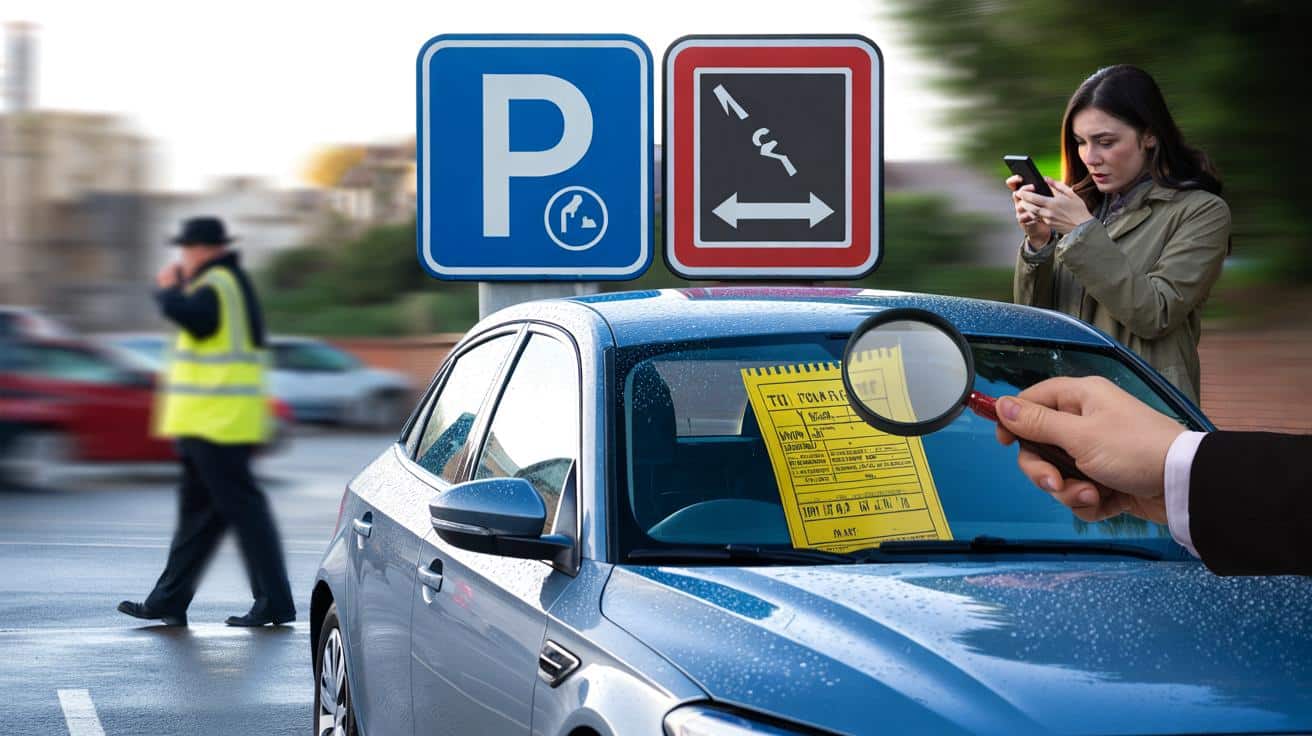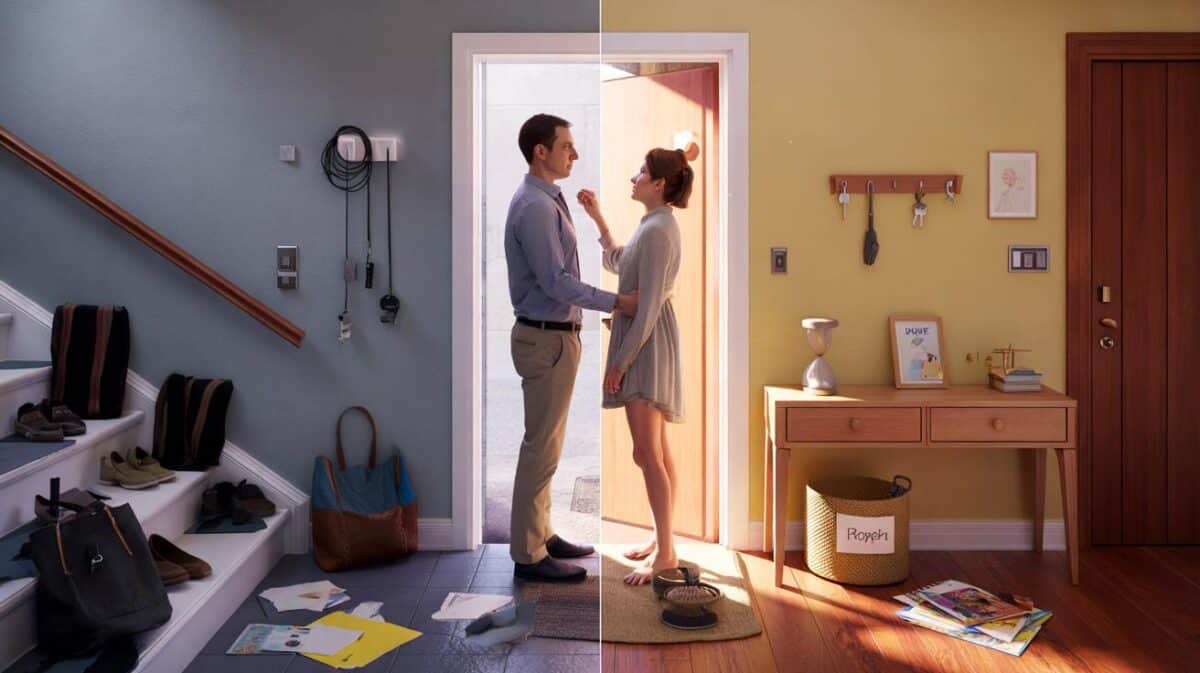Parking rules feel simple right up until the yellow envelope hits your windscreen. Signs fight each other, apps spin, wardens glide by like ghosts on timers. You pay. You stay within the paint. You still get stung. There’s a tiny legal move that flips the power, and most drivers never use it.
A woman tapped her card again, shrugged at the circle of doom, and snapped a photo of the faulty machine for luck. Thirty-nine minutes later she returned to a brittle sleeve tucked under her wiper, the kind that turns your stomach in one glance. She stood there long enough to get cold in the knees. She looked at the sign, at the machine, back at the sign. The warden had already turned into steam.
She folded the ticket in and out, reading the same lines like a prison yard. One line stuck like a burr. It led her somewhere unexpected.
The small print that fights back
We’ve all had that moment when a fine feels like a foregone conclusion. The tiny trick starts with learning there are two worlds of parking in Britain. Council-issued Penalty Charge Notices are public law. Private Parking Charge Notices are invoices from companies, salted with legalese. The same yellow wallet can hide two totally different beasts. That distinction unlocks everything.
Last year, DVLA data shows private firms obtained over eleven million sets of keeper details. That’s a stadium of drivers every single week. A reader called Maya sent me screenshots from a retail park in Leeds. She appealed as the registered keeper and didn’t name the driver. The company’s notice had muddled dates and no clear “period of parking”. POPLA tossed it out. The ticket vanished like vapour.
Here’s what sits underneath that little miracle. The Protection of Freedoms Act 2012, Schedule 4, lets private firms chase the keeper only if they hit strict steps and deadlines. Miss a word or a timescale and the keeper liability falls away. The driver might still owe, but if you don’t name the driver, there’s often no one left to bill. Council PCNs play by different, statutory rules. The trick lives on the private side of the fence.
The tiny legal trick: say less, win more
When a private ticket lands, write as the registered keeper and keep the driver out of it. Use plain words: Do not name the driver. A simple line works: “I am the registered keeper. I will not be naming the driver. Your notice fails to create keeper liability under Schedule 4. Please cancel or provide a POPLA/IAS code.” Add a request for evidence of the landowner contract and photos of the signs. Short. Calm. Deadly precise.
Common pitfalls cost real money. Don’t phone them. Don’t ramble about who parked and why. Don’t upload selfies at the wheel. Let’s be honest: nobody actually does this every day. Yet a steady, one-page keeper appeal beats a late-night rant. Take timestamped photos of broken machines or hidden signs. Note arrival and exit times. Know the 10‑minute grace rule in paid or permitted bays. Check if your slip says “Penalty Charge Notice” (council) or “Parking Charge Notice” (private). Different rules, different plays.
There’s a mindset shift too. You’re not asking for mercy. You’re testing their paperwork against the law.
“If they want keeper liability, they must earn it on paper,” says a parking caseworker who’s seen thousands of appeals. “One missing cog and the whole machine stops.”
- Is it council or private? PCN vs Parking Charge Notice.
- Keeper appeal only. Keeper liability requires strict POFA compliance.
- Check dates: Notice to Keeper must arrive within tight windows.
- Look for the “period of parking,” not just ANPR entry/exit times.
- Photograph signs, bay markings, machine screens, and receipts.
- Don’t ignore a Letter Before Claim. Fight smart, and on time.
Before you bin that ticket
One sentence can turn a hostile letter into a paperwork problem for the company. That’s the beauty of this trick. It nudges the case back onto the rails it should have been riding in the first place. Some firms meet the law cleanly and win. Many do not. Private parking thrives on people naming drivers by habit, or panicking on the phone, or missing deadlines. *Say less, press the right legal buttons, and you give yourself a fair fight.* Share this with the person in your group chat who always gets stitched up by the retail park camera. The next yellow envelope might never stick.
| Key points | Detail | Reader Interest |
|---|---|---|
| Know your ticket type | Council PCN vs private Parking Charge Notice run on different rules and appeal routes. | Instantly changes your next move and your odds of success. |
| The keeper’s magic line | “I am the registered keeper and will not be naming the driver…” invokes POFA and shifts the burden. | Short script you can copy, paste, and use today. |
| Paperwork beats bluster | Strict deadlines, exact wording, proper signage and landowner authority decide liability. | Turns a gut-punch into a winnable admin check. |
FAQ :
- What’s the difference between a PCN and a private Parking Charge Notice?A PCN is a council fine under traffic law. A private charge is a civil invoice based on contract terms in a car park.
- Have I ruined it if I already said “I parked”?Maybe. That can identify you as the driver. You can still appeal on signage, grace periods, and POFA errors, but the key trick works best if the driver stays unnamed.
- Does the 10‑minute grace period apply everywhere?It applies to many council-managed paid or permitted bays and is reflected in industry codes for private sites. It won’t save you in no‑parking zones.
- Can I use this for a council PCN?No. Council PCNs follow statutory rules and formal representations. The “don’t name the driver” tactic targets private keeper liability under POFA.
- Will ignoring letters wreck my credit score?Ignoring early letters won’t touch your credit, but ignoring a county court claim can lead to a default judgment. Open your post and respond on time.








